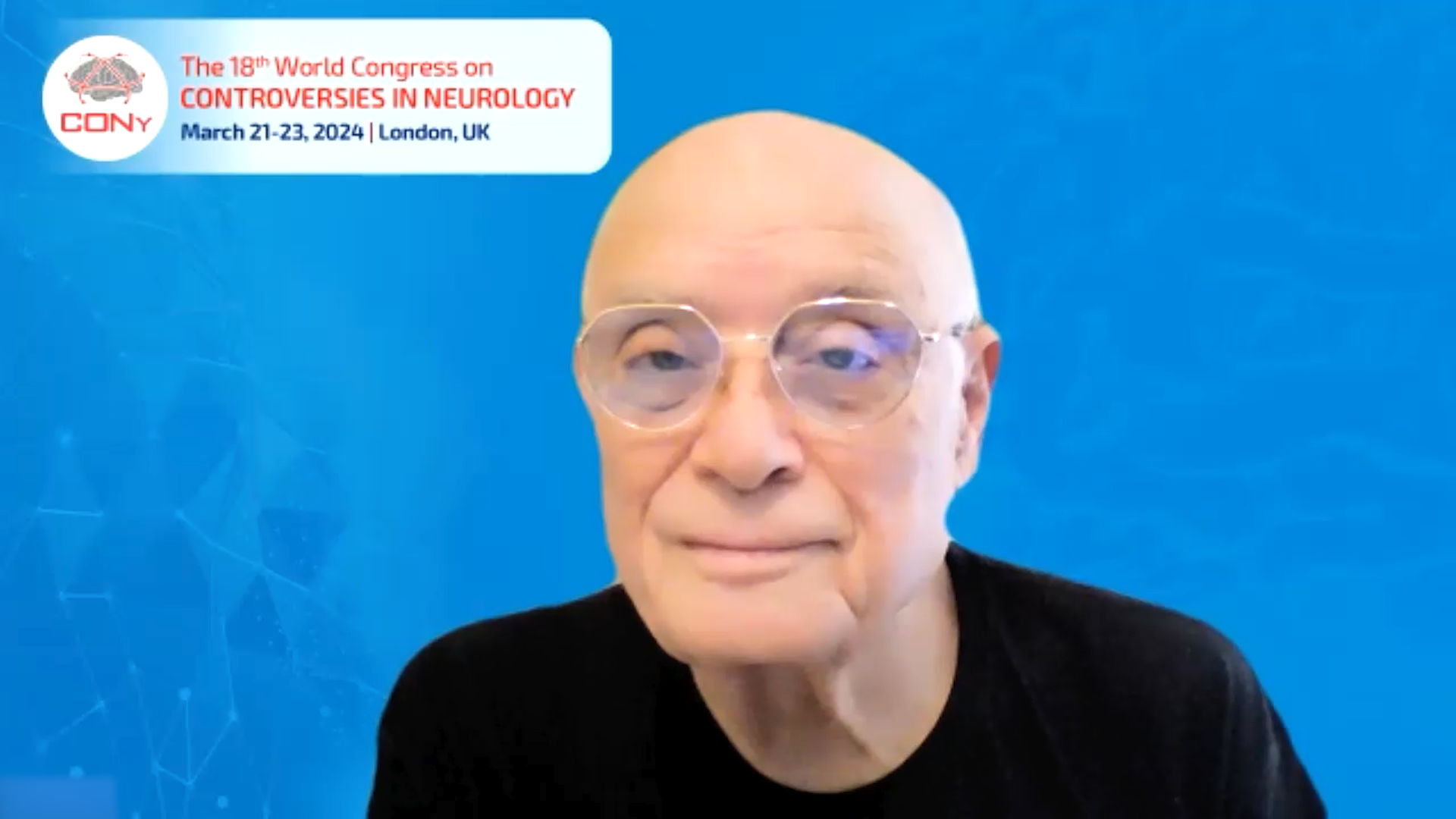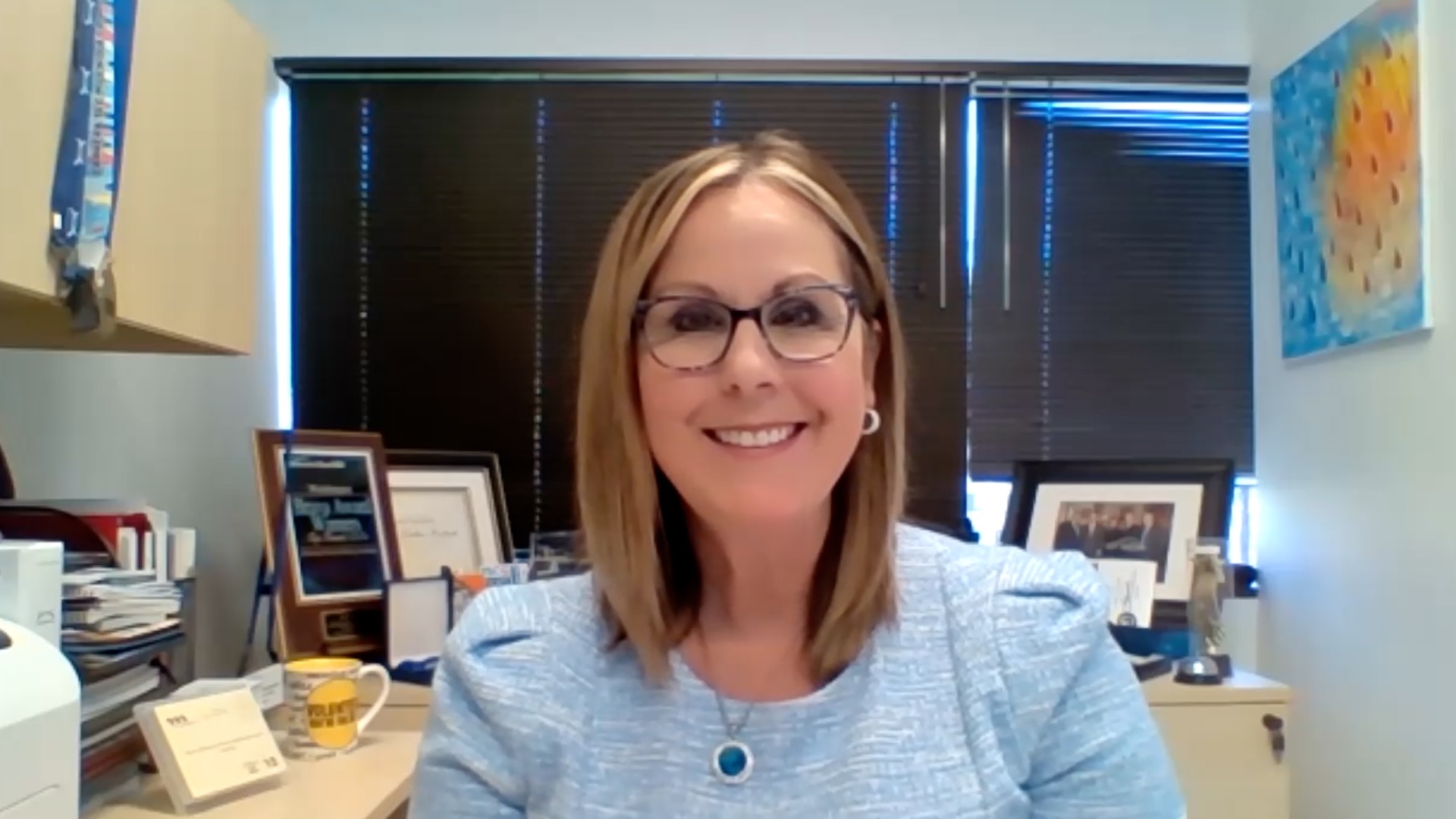World Congress on Controversies in Neurology (CONy): Presidential highlights, Amos D. Korczyn
The 17th World Congress on Controversies in Neurology (CONy) took place March 23-25 2023 in Dubrovnik, Croatia. Prof. Amos D. Korczyn, CONy President (University of Tel-Aviv, Tel-Aviv, Israel) joined touchNEUROLOGY to discuss the main aims and focus of the recent CONy meeting, the unique debate presentation style, and the most exciting debates, topics and highlights from the meeting.
Prof. Amos D. Korczyn also highlighted the 18th World Congress on Controversies in Neurology (CONy) that will take place on March 21-23, 2024 in London, UK.
Register for CONy 2024 – more information available here
Questions:
- What were the main aims and focus of this year’s CONy Meeting? (00:06)
- What were the most exciting debates, topics and highlights from the meeting? (01:51)
- What events and initiatives are planned in the coming year? (06:16)
Disclosures: Amos D. Korczyn has nothing to disclose in relation to this video interview.
Support: Interview and filming supported by Touch Medical Media. Interview conducted by Katey Gabrysch.
Filmed as a highlight of CONy 2023
More information on World Congress on Controversies in Neurology (CONy)
Transcript
What were the main aims and focus of this year’s CONy Meeting? (00:06)
So it’s very nice to join forces again with Touch Neurology. It’s been a pleasure to work with you for several years and thank you for asking me to talk about CONy. So, as you know, CONy is an annual meeting, has been going on for 17 years. We are now gearing up to the next one, which will be in London. This will be the 18th edition. I will be there at the end of March, you can see the dates up there and it’s very nice to join again. So, the basis of CONy is to have debates, pro-con debates and this is really a teaching exercise. So in each topic that we put up, there is a proponent and an opponent. Each has about ten minutes to discuss the case, they have to fight and then there is time for questions and comments from the floor and then we come up with voting. So the voting is a game. Of course, when we vote about anything, actually, there is no winner and loser because the issue is that we’re all winning. We are all winners because there are so many topics, so many issues and by learning in this way, we learn all the problems that are on the way, and we can make up our own minds, who is right and who is wrong and what should we be careful about.
What were the most exciting debates, topics and highlights from the meeting? (01:51)
So we cover all the fields of neurology. So we have parallel sessions, one on, let’s say, stroke and, in the next hall, it will be on Parkinson’s or ALS or Alzheimer’s and so on, multiple sclerosis and so on. In each of these topics, we have about seven or eight debates, each in the same format, about one hour pro-con debates, and this is the way that we do it and this is very good. We also have a special point in bringing up new diseases. So we can talk about the new autoimmune diseases like autoimmune encephalitis, and other autoimmune diseases, MOGAD and so on. But also things that we’ve all heard about, like, long COVID and its effect on the brain and so on. We have, also we’re interested in the least well understood topics. For example, the functional disorders, what we call functional, like, in epilepsy, we have several patients, whom we all see, who do not have epilepsy in the real sense of the word because they don’t have the EEG manifestations, but still, they look to the clinicians as if they have epilepsy. So what is it, really? And very importantly, practical question, who should look after them? Because many neurologists would tend to refer them to psychiatrists. But maybe and this is my personal view. I can deal with this as well as any psychiatrist because, what the psychiatrists do, if they have the time, they go into it, and then they prescribe drugs which are the same drugs that we prescribe to our patients and so on. So, then another issue that we are tackling and everybody else is interested in is the role of biomarkers. Of course, biomarkers are important in several different aspects. They tell us some things about the pathogenesis of the disease, or they tell us about how to diagnose and when can we diagnose a disease let’s say, multiple sclerosis or Alzheimer’s disease versus a similar clinical entity. How early can we identify, let’s say, Alzheimer’s disease? Of course, we know that in the brain this disorder progresses over several decades before the first symptoms come in. The same is true for other neurodegenerative diseases, for example dementia, Parkinson’s, not only Alzheimer’s. So all these are important to be able to diagnose the disorder early so we can intervene before the clinical manifestations come up. Of course, there are other issues of the treatment. How can this biomarker tell us whether a drug or intervention is working or not. Because not all drugs are of course effective in every patient. So this is the useful thing. So all these things can be dealt with and we try to deal with them in different diseases, not only Alzheimer disease. And so, about treatment, of course, outside the issue of the biomarkers, when to start? When do we want to start in the disease? How long are we going to continue and when to stop? These are issues that are not really answered very frequently. So but these are important in clinical practice.
What events and initiatives are planned in the coming year? (06:16)
So our last meeting was just a couple of months ago, it was in beautiful Dubrovnik attended by almost 1,000 participants and the atmosphere there was excellent, not only based on the weather and the excellent program that we have, but in many other respects. So everybody was very happy there. So based on this, we’re going to have our next meeting in London. This will take place in March we always try for it to be at end of March. So March 21st to 23rd, we are going to meet in London this is again in an excellent place, and of course everybody loves to come to London. So please join us submit your abstract if you want to get a prize, but this should be a good abstract in order to get a prize, not everybody gets it. But I’m sure that you’ll all enjoy the science and the good atmosphere that goes on there.
Subtitles and transcript are autogenerated






